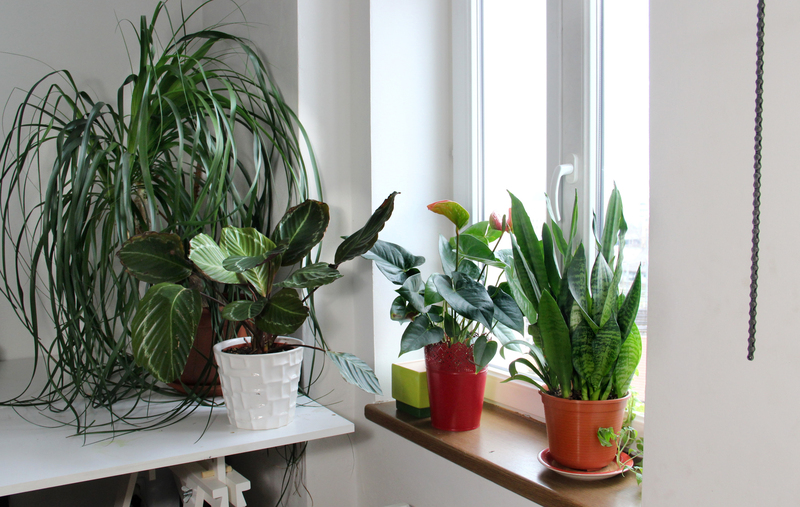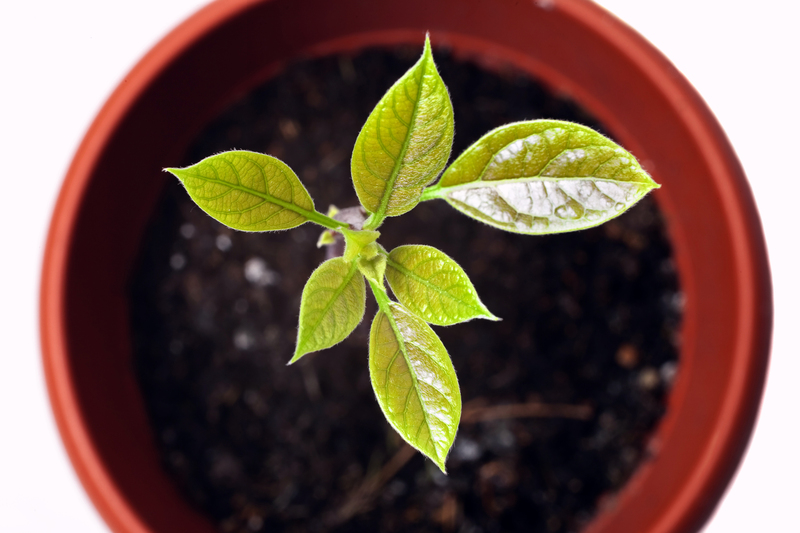Make Gardening Easier with These 9 Tips for Beginners
Posted on 24/05/2025
Make Gardening Easier with These 9 Tips for Beginners
Are you excited to begin your gardening journey but unsure where to start? Gardening for beginners can seem overwhelming at first, but with a little guidance and the right approach, you can make this rewarding hobby much more enjoyable and productive. In this article, we'll share nine essential gardening tips that will help you plant, grow, and nurture your outdoor space with confidence. Whether you have a backyard vegetable patch or a small balcony garden, these strategies will set you up for successful and easier gardening.
1. Start with the Right Location
Choosing the perfect spot for your garden is one of the foundational gardening tips for beginners.
Why Location Matters
- Most vegetables and flowers require at least 6 hours of direct sunlight daily.
- Easily accessible locations make watering and maintenance less of a chore.
- Pick a spot with good drainage to prevent waterlogging roots.
Observe your outdoor space throughout the day. Notice the areas that receive the most sunlight and those that stay shaded. Use this knowledge to decide which plants to grow and where to plant them for optimal growth and minimal effort.

2. Pick Easy-to-Grow Plants First
If you're new to gardening, choose plants suited to beginners. Some plants are less demanding than others and forgiving of small mistakes. Opt for varieties known for their hardiness and adaptability.
Great Starter Plants
- Leafy greens: Lettuce, spinach, and kale grow quickly and don't require a ton of maintenance.
- Root vegetables: Radishes and carrots are reliable and quick to harvest.
- Herbs: Basil, mint, and chives can thrive in pots or small beds.
- Marigolds: Not only bright and cheery, but they also deter some garden pests.
Starting with low-maintenance plants will build your confidence and set the stage for future gardening success.
3. Invest in Basic Tools
Quality tools make garden jobs easier. For gardening novices, you don't need an arsenal of expensive equipment--just a few essentials for daily tasks.
Must-Have Gardening Tools for Beginners
- Hand trowel: Perfect for digging, planting, and transferring soil.
- Gardening gloves: Protect your hands from thorns, insects, and dirt.
- Watering can or hose: Ensure your plants get adequate moisture.
- Pruners/snips: For trimming plants and harvesting produce or flowers.
- Garden fork: Helps loosen soil and remove weeds.
With these basic tools, you can handle most gardening chores with ease and comfort.
4. Prioritize Soil Quality
One of the most crucial gardening hacks for beginners is focusing on soil health. Good soil is the foundation for thriving plants.
How to Improve Your Soil
- Test your soil: Check pH and nutrient levels with a simple kit from your local garden center.
- Amend with compost: Adding organic matter enriches soil, boosts fertility, and improves drainage.
- Mulch beds: Use straw, leaves, or bark to retain moisture and suppress weeds.
A little attention to your soil will pay off in healthier, more resilient plants.
5. Water Wisely and Efficiently
Knowing when and how to water is among the top "easy gardening tips." Many beginners either overwater or underwater their garden, both of which can cause problems.
Effective Watering Tips
- Water deeply but less often. This encourages deeper root growth and hardier plants.
- Water in the morning to reduce evaporation and minimize leaf diseases.
- Check soil moisture a few inches below the surface before watering--only water when it feels dry.
- Mulch around your plants to help retain moisture and reduce the need for frequent watering.
By learning the habits of your plants and monitoring your soil, you'll develop an intuitive sense of watering needs.
6. Embrace Container Gardening
If you're limited on space or want to start small, container gardening is a perfect solution for beginners. It lets you grow a wide range of plants--even if you only have a balcony or patio.
Why Try Container Gardening?
- Move plants easily for optimal light and weather protection.
- Control soil quality in each pot.
- Minimize weeds and pests.
- Great for herbs, salad greens, flowers, and even some vegetables like tomatoes and peppers.
Use high-quality potting mix and pots with drainage holes. Remember to water containers a bit more frequently, as they tend to dry out faster than garden beds.
7. Stay Ahead of Weeds
Weeds compete with your plants for resources and can make gardening harder for beginners. The trick is to address weeds early and regularly, rather than letting them gain a foothold.
How to Control Weeds Effectively
- Mulch liberally to cover exposed soil.
- Hand pull weeds when they're small for easier removal.
- Use a hoe or weeder tool to cut weeds off at the root, especially after rain.
- Avoid disturbing soil too much, as this brings new weed seeds to the surface.
With a proactive approach, you can keep weeds from spoiling your garden and enjoy a much easier gardening experience.
8. Feed Your Plants Properly
While good soil provides a base, most plants will still benefit from added nutrition. Fertilizing is key to healthy, productive gardens, but it's important not to overdo it--especially for beginners.
Simple Fertilizing Tips
- Use balanced, slow-release fertilizers to avoid burning delicate plant roots.
- Follow package directions carefully for dosage and frequency.
- Consider natural options like compost tea, fish emulsion, or worm castings.
- Look for signs of nutrient deficiency, such as yellowing leaves or stunted growth, before applying more fertilizer.
Understanding plant nutrition will help you provide just what your garden needs, resulting in stronger growth and higher yields.

9. Enjoy the Journey and Keep Learning
Finally, the most important tip for beginner gardeners is to be patient and enjoy the process. Gardening is as much about the experience as it is about the end results.
Keep Growing Your Skills
- Start a gardening journal to track what you plant, when you plant it, and what works best in your space.
- Join local gardening groups or online forums to get advice and share experiences.
- Read books, watch tutorials, and take classes--there's always more to learn.
- Don't be discouraged by setbacks; even experienced gardeners face challenges.
Celebrate your achievements--whether that's a bumper crop of tomatoes or a pot of cheerful flowers. Every season will teach you something new.
Conclusion: Your Gardening Success Awaits
Making gardening easier is all about preparation, choosing the right plants, and building good habits from the beginning. With these easy gardening tips for beginners, you'll be well on your way to creating a lush, thriving space that brings joy for years to come. Remember, every gardener started somewhere--enjoy the journey, keep learning, and don't forget to get your hands dirty!
Frequently Asked Questions
- What is the easiest vegetable to grow for beginners? Lettuce, radishes, and green beans are all excellent choices for new gardeners.
- How often should I water my new garden? Aim for deep watering once or twice a week, depending on the weather and soil type. Always check the soil before watering.
- Do I need fertilizer right away? With good soil, you may not need much fertilizer at first. Observe your plants for signs they need a boost.
- Can I garden without a yard? Absolutely! Container gardening and vertical gardening make it easy to grow herbs and veggies in small spaces.
Now it's your turn--grab your gloves, pick a patch, and let your gardening adventure begin with ease and confidence!
```
